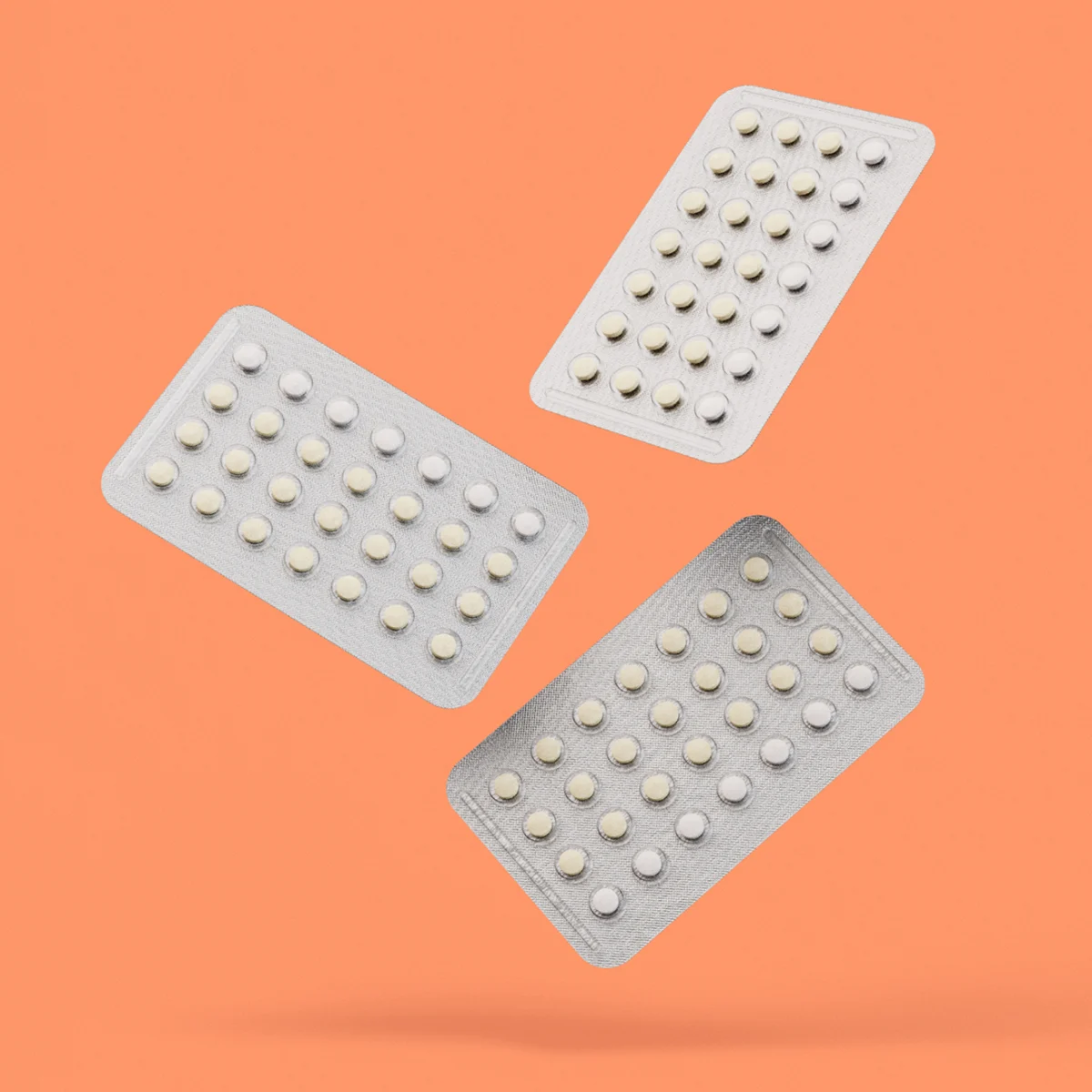Junel birth control: uses, side effects, and interactions

Reviewed by Yael Cooperman, MD, Ro,
Written by Hope Chang, PharmD
last updated: Jul 13, 2021
5 min read
Here's what we'll cover
Here's what we'll cover
Sometimes choosing your contraception method can feel like the cereal aisle at the grocery store—a plethora of options that leave you stuck with decision paralysis.
Junel is one of many birth control pill options. There are five types of Junel, which differ in the number of hormones and placebo pills they contain. Some Junel pills have iron added.
Having a lot of options can be overwhelming at first. On the bright side, it’s nice to have options when you’re looking for a birth control product that best fits your needs.
What is Junel birth control?
Combined oral contraceptives like Junel contain two hormones: progestin and estrogen. These hormones affect your menstrual cycle and prevent ovulation (the release of an egg from your ovaries). They also change your cervical mucus, making it harder for sperm to reach an egg and fertilize it (TEVA, 2020-a).
What’s the difference between different types of Junel?
There are currently five types of Junel products. In terms of effectiveness, combined oral contraceptives are 93% effective with typical use (Trussell, 2011).
All types of Junel birth control contain the same active ingredients but have different dosages (TEVA, 2020-b).
Some pill packs contain iron tablets as placebo pills at the end of each cycle (the Fe in Loestrin Fe is the chemical symbol for iron). All pill packs have 21 active pills, except Junel Fe 24, which has 24 active tablets (TEVA, 2017). Products with Fe in their name have iron pills taken for the last four or seven days.
What else does Junel treat?
Junel is only approved by the U.S Food and Drug Administration (FDA) to prevent pregnancy, but it can also help with other conditions.
Birth control pills can regulate your menstrual cycle, reduce endometriosis pain, and improve acne (Cooper, 2021). Junel and other birth control pills won’t protect you from sexually transmitted infections (TEVA, 2020-a).
What side effects should I expect with Junel?
Estrogen can cause side effects and raise your risk of heart conditions and blood clots. Because of this, the amount in birth control pills is reduced.
If your healthcare provider determines that you’re at high risk for developing blood clots, they may recommend birth control that doesn’t contain estrogen.
Junel 1/20 products (Junel 1/20, Junel Fe 1/20, and Junel 24) pose less of a risk for severe side effects, but may cause abnormal vaginal bleeding or changes in your menstrual cycle (Gallo, 2013).
Junel Fe 1/20 and Fe 24 have the same amount of hormones, but Fe 24 has more active tablets. Having more active tablets and fewer placebo pills results in a shorter, lighter period. Studies also found that women taking 24-day birth control pills had more spotting or breakthrough bleeding between cycles (Kaunitz, 2009).
Birth control pills that contain progesterone and estrogen have many of the same side effects. Common ones include:
Nausea or vomiting
Cramps
Bloating
Fluid retention
Breast tenderness and growth
Headaches
Weight gain or loss
Depressed mood
Some people report that birth control pills cause dry eyes, making contact lenses feel uncomfortable. It can be helpful to have a pair of glasses on hand in case you have to take your lenses out (TEVA, 2020-a).
Some people may experience multiple side effects, while others don’t have any. Adverse reactions usually get better with time as your body gets used to the medication, but talk to a healthcare provider if symptoms don’t improve (Grossman, 2010).
Bleeding between periods may be more common in Junel products with lower hormones and more active pills, but can happen with all birth control pills. Irregular bleeding is most common during the first three months and should get better as the medication regulates your cycle (TEVA, 2020-b).
Is Junel safe?
As mentioned above, birth control pills that contain estrogen can raise the risk of heart problems and blood clots. The more estrogen, the higher the risk.
Before starting Junel, a healthcare provider will review your medical history to determine if you’re at risk. If your risk is high, they may recommend a contraceptive method that doesn’t have estrogen.
Junel should also be avoided in women with breast cancer, liver disease, and anyone who experiences yellowing of the skin and eyes from a birth control pill or during pregnancy (TEVA, 2020-a).
How to take Junel birth control
Taking your birth control pills exactly as directed is the best way to ensure they do their job.
If you’re using a Junel Fe pack, take one pill at the same time every day. When you finish one pill pack, move immediately to the next one.
For packs that don’t have iron pills, take one tablet at the same time each day for 21 days. Once the pack is empty, you’ll have a week of no Junel pills. After seven days, start a new pack and repeat.
Perfect adherence is when you take Junel tablets precisely 24 hours apart (except during the off weeks). Pick a time of day when it’s convenient for you to take it. Setting an alarm or using a medication reminder app on your phone can help if you have trouble remembering to take your birth control on time.
If you forget to take an active tablet, take the missed dose as soon as possible. Then take the next tablet at your regularly scheduled time. This might mean you take two pills on the same day or even at the same time, but that’s ok. If you miss more than one pill, contact a healthcare professional for medical advice.
If you miss any active pills, you’ll want to use a backup form of contraception––like condoms and spermicides—or skip sex altogether for seven days. If you forget one of the iron pills, you can throw away the missed ones and take the next dose at your regular time (TEVA, 2020-a).
How to get started with Junel
Directions for starting birth control might vary depending on what you’re currently using.
If you’re switching from another birth control pill, start Junel on the day you would have started a new pack of your previous prescription. If you’re using a patch or vaginal ring, start Junel on the day you would have swapped out the patch or ring. If you have an implant or IUD, start Junel on the same day it’s removed (TEVA, 2017).
If you recently had a baby, seek medical advice about your options for contraception. Junel and other estrogen-containing birth control pills may not be a good option if you're breastfeeding since they can affect your milk supply (TEVA, 2020-a).
If you’re not currently using a hormonal birth control method, you have a few options for starting. Make sure you always start with the tablet in the upper left hand corner. Traditionally, healthcare providers have recommended starting birth control pills on the first day of your period to give it time to work before you ovulate.
Another method is the Sunday start, where you wait until the first Sunday after your period (your pill pack comes pre-printed for this schedule). For those who start on a different day of the week, Junel pill packs come with day of the week stickers that you can place over the pre-printed days (TEVA, 2017).
For anyone who doesn’t want to wait, start the medication as soon as you receive it. For the Sunday start method, you’ll need a backup method of contraception for the first seven days (Allen, 2020).
DISCLAIMER
If you have any medical questions or concerns, please talk to your healthcare provider. The articles on Health Guide are underpinned by peer-reviewed research and information drawn from medical societies and governmental agencies. However, they are not a substitute for professional medical advice, diagnosis, or treatment.
Allen, R. J., MD, MPH. (2020, November 02). Combined estrogen-progestin oral contraceptives: Patient selection, counseling, and use. Retrieved April 03, 2021 from https://www.uptodate.com/contents/combined-estrogen-progestin-oral-contraceptives-patient-selection-counseling-and-use
Cooper, D. B., & Mahdy, H. (2021). Oral Contraceptive Pills. In StatPearls . StatPearls Publishing. Retrieved April 05, 2021 from https://pubmed.ncbi.nlm.nih.gov/28613632/
Gallo, M. F., Nanda, K., Grimes, D. A., Lopez, L. M., & Schulz, K. F. (2013). 20 µg versus >20 µg estrogen combined oral contraceptives for contraception. The Cochrane Database of Systematic Reviews, 2013 (8), CD003989. doi:10.1002/14651858.CD003989.pub5 Retrieved from https://pubmed.ncbi.nlm.nih.gov/23904209/
Grossman Barr, N. (2010). Managing adverse effects of hormonal contraceptives. American Family Physician, 82 (12), 1499–1506. Retrieved from https://pubmed.ncbi.nlm.nih.gov/21166370/
JUNEL FE 24 [package insert]. North Wales, PA: Teva Pharmaceuticals Inc.; 2017 Retrieved from https://dailymed.nlm.nih.gov/dailymed/fda/fdaDrugXsl.cfm?setid=ffbf48de-0f61-49f9-9cd5-6eb8e08040db&type=display
Kaunitz, A. M., Burkman, R. T., Fisher, A. C., & LaGuardia, K. D. (2009). Cycle control with a 21-day compared with a 24-day oral contraceptive pill: a randomized controlled trial. Obstetrics and Gynecology, 114 (6), 1205–1212. doi:10.1097/AOG.0b013e3181beab47. Retrieved from https://pubmed.ncbi.nlm.nih.gov/19935020/
Teva Pharmaceuticals USA. (2017). JUNEL FE 24 Highlights of prescribing information. North Wales, PA: Author. Retrieved from https://dailymed.nlm.nih.gov/dailymed/fda/fdaDrugXsl.cfm?setid=ffbf48de-0f61-49f9-9cd5-6eb8e08040db&type=display
Teva Pharmaceuticals USA. (2020). JUNEL FE 1.5/30 Package insert. Sellersville, PA: Author. Retrieved from https://dailymed.nlm.nih.gov/dailymed/fda/fdaDrugXsl.cfm?setid=253c6b2e-2c93-4ee7-94a6-fd063c569c1f&type=display
Teva Pharmaceuticals USA. (2020). J UNEL FE 1/20 Package insert. North Wales, PA: Author. Retrieved from https://dailymed.nlm.nih.gov/dailymed/fda/fdaDrugXsl.cfm?setid=75bb0024-8f1a-4036-9acd-006ea430f3b7&type=display
Trussell, J. (2011). Contraceptive failure in the United States. Contraception, 83 (5), 397–404. doi:10.1016/j.contraception.2011.01.021. Retrieved from https://pubmed.ncbi.nlm.nih.gov/21477680/










